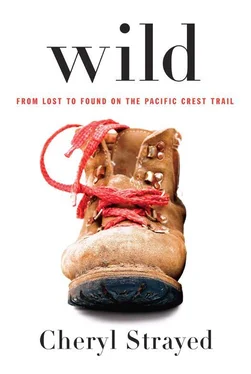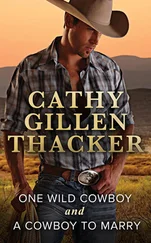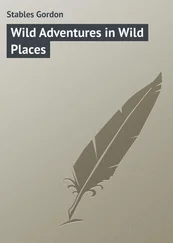Cheryl Strayed - Wild
Здесь есть возможность читать онлайн «Cheryl Strayed - Wild» весь текст электронной книги совершенно бесплатно (целиком полную версию без сокращений). В некоторых случаях можно слушать аудио, скачать через торрент в формате fb2 и присутствует краткое содержание. Год выпуска: 2012, ISBN: 2012, Жанр: Современная проза, на английском языке. Описание произведения, (предисловие) а так же отзывы посетителей доступны на портале библиотеки ЛибКат.
- Название:Wild
- Автор:
- Жанр:
- Год:2012
- ISBN:978-0-307-95765-8
- Рейтинг книги:4 / 5. Голосов: 1
-
Избранное:Добавить в избранное
- Отзывы:
-
Ваша оценка:
- 80
- 1
- 2
- 3
- 4
- 5
Wild: краткое содержание, описание и аннотация
Предлагаем к чтению аннотацию, описание, краткое содержание или предисловие (зависит от того, что написал сам автор книги «Wild»). Если вы не нашли необходимую информацию о книге — напишите в комментариях, мы постараемся отыскать её.
Wild — читать онлайн бесплатно полную книгу (весь текст) целиком
Ниже представлен текст книги, разбитый по страницам. Система сохранения места последней прочитанной страницы, позволяет с удобством читать онлайн бесплатно книгу «Wild», без необходимости каждый раз заново искать на чём Вы остановились. Поставьте закладку, и сможете в любой момент перейти на страницу, на которой закончили чтение.
Интервал:
Закладка:
It was because of this very singing that I almost stepped on a rattlesnake, having failed to absorb that the insistent rattling that increased in volume was actually a rattle. And not just any old rattle, but one attached to the tail end of a serpent as thick as my forearm.
“AH!” I shrieked when my eyes landed on the snake coiled up a few feet away from me. If I’d been able to jump, I would have. I jumped but my feet didn’t leave the trail. Instead, I scrambled away from the snake’s small blunt head, yowling in terror. It was a good ten minutes before I could work up the courage to step around it in a wide arc, my entire body quaking.
The rest of the day was a slow march, my eyes scanning both the ground and the horizon, terrified at every sound, while also chanting to myself: I am not afraid . Shaken as I was, I couldn’t help but feel grateful to glimpse a couple of the animals that shared this place that had begun to feel a tiny bit like mine. I realized that in spite of my hardships, as I approached the end of the first leg of my journey, I’d begun to feel a blooming affection for the PCT. My backpack, heavy as it was, had come to feel like my almost animate companion. No longer was it the absurd Volkswagen Beetle I’d painfully hoisted on in that motel room in Mojave a couple of weeks before. Now my backpack had a name: Monster.
I meant it in the nicest possible way. I was amazed that what I needed to survive could be carried on my back. And, most surprising of all, that I could carry it. That I could bear the unbearable. These realizations about my physical, material life couldn’t help but spill over into the emotional and spiritual realm. That my complicated life could be made so simple was astounding. It had begun to occur to me that perhaps it was okay that I hadn’t spent my days on the trail pondering the sorrows of my life, that perhaps by being forced to focus on my physical suffering some of my emotional suffering would fade away. By the end of that second week, I realized that since I’d begun my hike, I hadn’t shed a single tear.
I hiked the final miles to the narrow flat where I made camp the night before I reached Kennedy Meadows in the familiar agony that had been my constant companion. I was relieved to see that a wide fallen tree bordered my campsite. It was long dead, its trunk worn gray and smooth, shorn of its bark ages ago. It formed a high smooth bench, where I sat and removed my pack with ease. As soon as I got my pack off, I lay on the tree as if it were a couch — a sweet respite from the ground. The tree was just wide enough that if I lay still, I could rest without rolling off either side. It felt spectacular. I was hot, thirsty, hungry, and tired, but all of those things were nothing in comparison to the burning pain that emanated from the knots in my upper back. I closed my eyes, sighing with relief.
A few minutes later, I felt something on my leg. I looked down and saw that I was covered with black ants, an entire army of them, making a conga line from a hole in the tree and swarming my body. I shot off the log, shouting louder than I had when I’d seen the bear and the rattlesnake, batting at the harmless ants, breathless with an unreasonable fear. And not just of the ants, but of everything. Of the fact that I wasn’t of this world, even if I insisted I was.
I cooked my dinner and retreated into my tent as soon as I could, well before dark, simply so I could be inside, even if inside only meant being surrounded by a thin sheet of nylon. Before I began hiking the PCT, I’d imagined that I’d sleep inside my tent only when it threatened to rain, that most nights I’d lay my sleeping bag on top of my tarp and sleep beneath the stars, but about this, like so much else, I’d been wrong. Each evening, I ached for the shelter of my tent, for the smallest sense that something was shielding me from the entire rest of the world, keeping me safe not from danger, but from vastness itself. I loved the dim, clammy dark of my tent, the cozy familiarity of the way I arranged my few belongings all around me each night.
I pulled out As I Lay Dying , put on my headlamp, and positioned my food bag beneath my calves while saying a little prayer that the bear I saw earlier in the day — the black bear, I emphasized — wouldn’t bust through my tent to steal it from me.
When I woke at eleven to the yipping of coyotes, the light from my headlamp had grown dim; the Faulkner novel was still open on my chest.
In the morning, I could barely stand up. It wasn’t just that morning, day 14. It had been happening for the past week, an ever-increasing array of problems and pains that made it impossible for me to stand or walk like a regular person when I first emerged from my tent. It was as if I were suddenly a very old woman, limping into the day. I’d managed to carry Monster more than a hundred miles over rough and sometimes steep terrain by then, but as each new day began, I couldn’t even tolerate my own weight; my feet tender and swollen from the previous day’s exertions; my knees too stiff to do what a normal gait required of them.
I’d finished ambling barefoot around my camp and was packed up and ready to go when two men appeared on the trail from the south. Like Greg, they greeted me by name before I’d even spoken a word. They were Albert and Matt, a father-and-son team from Georgia, hiking the entire trail. Albert was fifty-two; Matt, twenty-four. Both had been Eagle Scouts and they looked it. They had a clean-cut sincerity and a military precision that belied their grizzled beards, their dust-caked calves, and the five-foot stench cloud that surrounded their every move.
“Jiminy Cricket,” Albert drawled when he saw Monster. “What you got in there, girly-o? Looks like everything but the kitchen sink.”
“Just backpacking things,” I said, reddening with shame. Each of their packs was about half the size of mine.
“I’m just teasing you,” Albert said kindly. We chatted about the scorching trail behind us and the frozen one ahead. As we spoke, I felt just as I had when I’d met Greg: giddy to be with them, though being with them only underscored how insufficiently I’d prepared for my hike. I could feel their eyes on me, read them as they shifted from one thought to the next, as they registered my preposterous pack and my dubious grasp of the business at hand, while also acknowledging the moxie it had taken to make it this far on my own. Matt was a big lug of a guy, built like a linebacker, his reddish-brown hair curling softly over his ears and glinting golden on his gargantuan legs. He was only a couple of years younger than me, but so shy he struck me as a kid, letting his dad do most of the talking while he stood off to the side.
“Pardon my question,” asked Albert, “but how many times are you urinating a day in this heat?”
“Um … I haven’t been keeping track. Should I be?” I asked, feeling exposed yet again for the wilderness fraud that I was. I hoped they hadn’t been camped near enough to hear me shrieking about the ants the evening before.
“Ideally, it’s seven,” said Albert crisply. “That’s the old Boy Scout rule, though with this heat and the waterless conditions on the trail, combined with the extreme level of exertion, we’ve been lucky if it’s three.”
“Yeah. Me too,” I said, though in fact there’d been one twenty-four-hour period — in the midst of the most ferocious heat — that I hadn’t gone even once. “I saw a bear south of here,” I said to change the subject. “A brown bear, which was a black bear, of course. But it looked brown. In color, I mean, the black bear.”
“They’re just cinnamon-colored down in these parts,” said Albert. “Bleached by the California sun, I suppose.” He tapped the brim of his hat. “We’ll be seeing you up in Kennedy Meadows, miss. Pleasure to meet you.”
Читать дальшеИнтервал:
Закладка:
Похожие книги на «Wild»
Представляем Вашему вниманию похожие книги на «Wild» списком для выбора. Мы отобрали схожую по названию и смыслу литературу в надежде предоставить читателям больше вариантов отыскать новые, интересные, ещё непрочитанные произведения.
Обсуждение, отзывы о книге «Wild» и просто собственные мнения читателей. Оставьте ваши комментарии, напишите, что Вы думаете о произведении, его смысле или главных героях. Укажите что конкретно понравилось, а что нет, и почему Вы так считаете.












